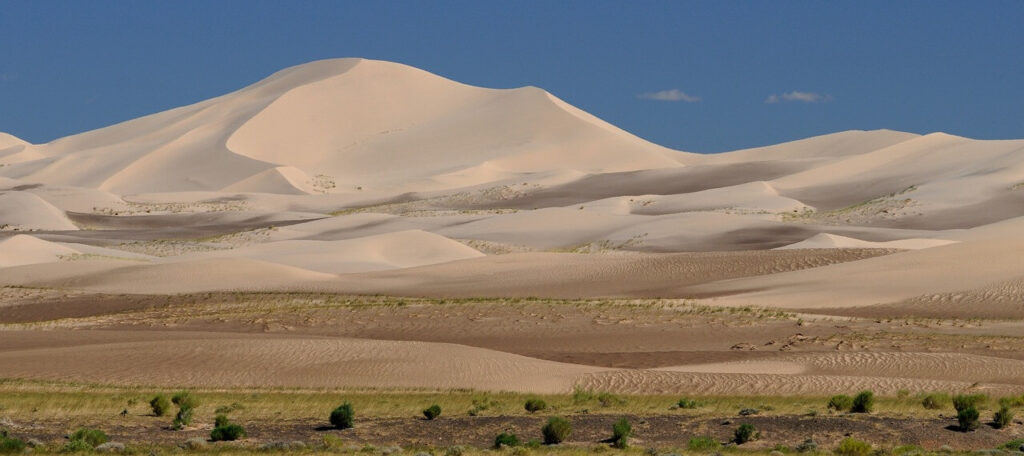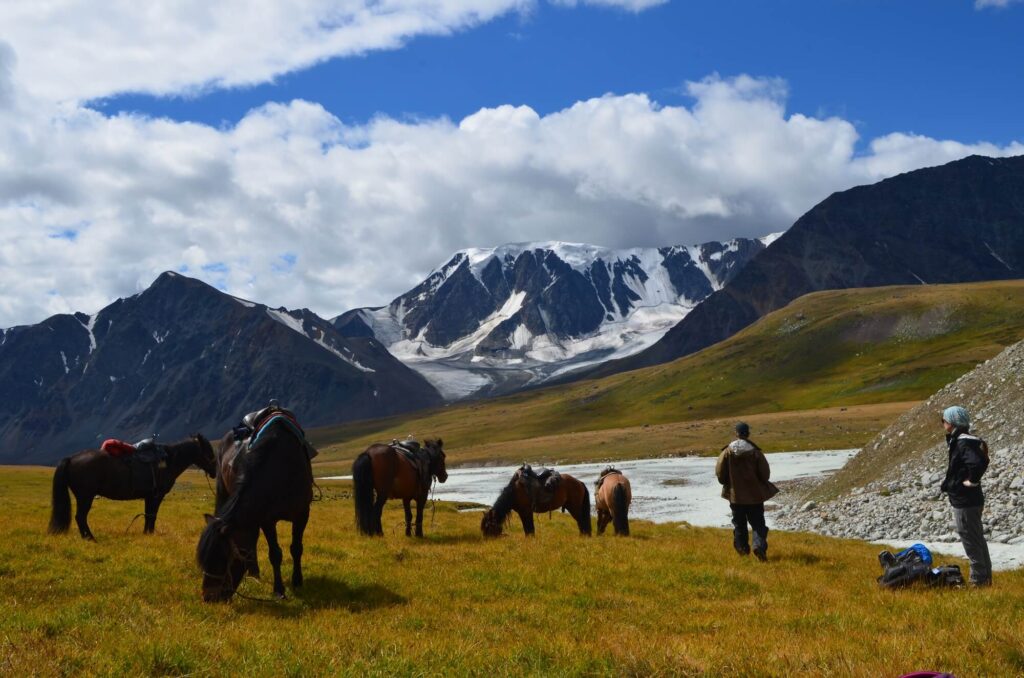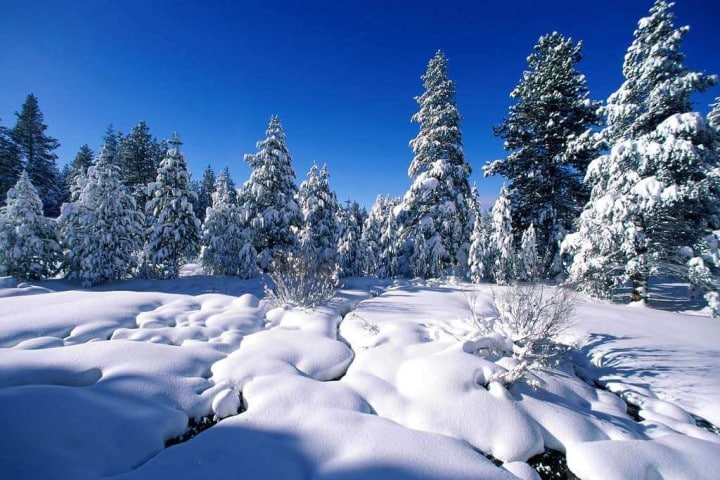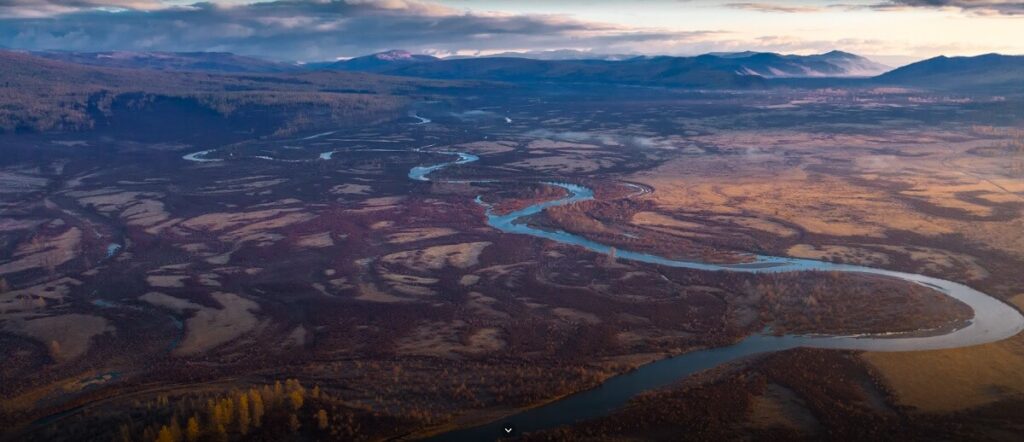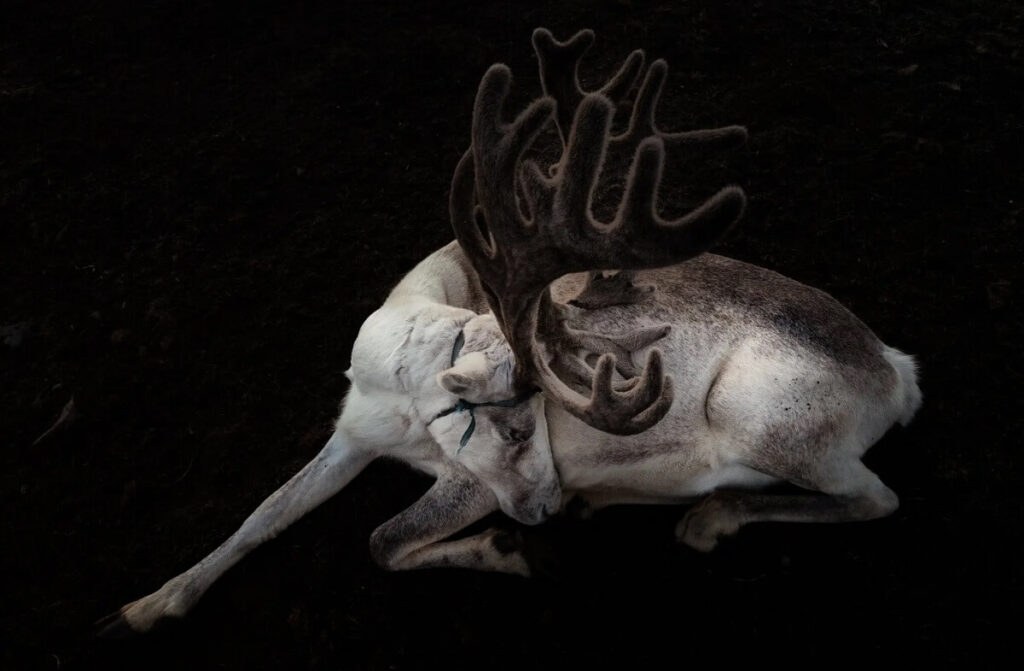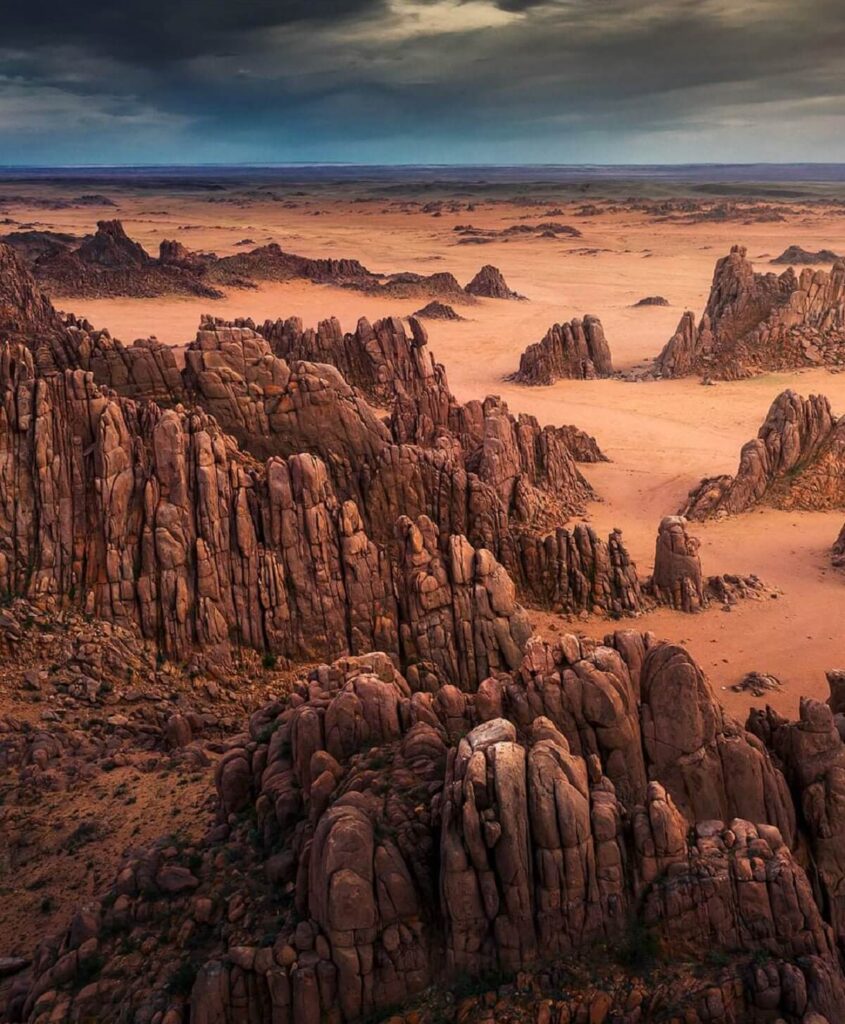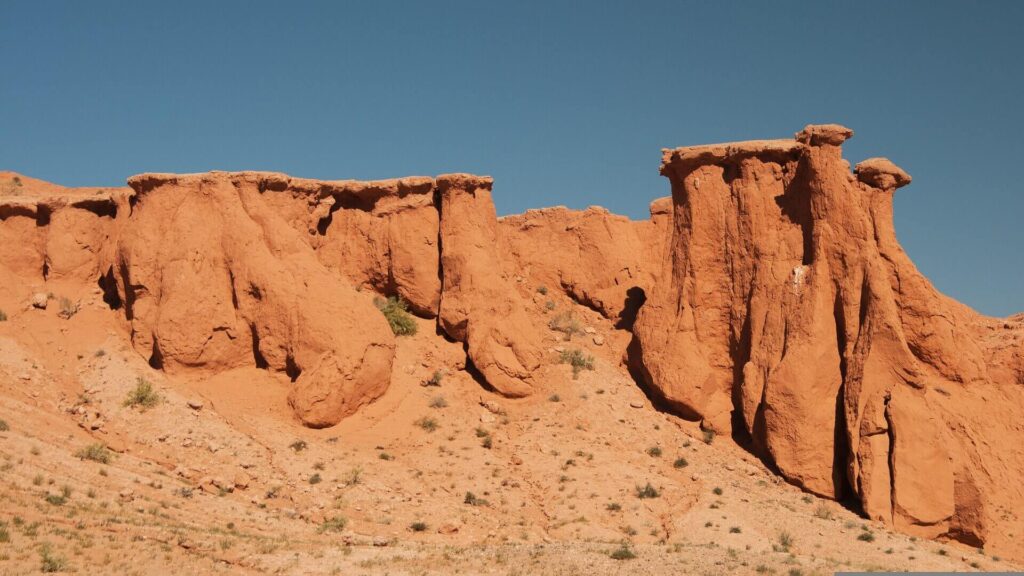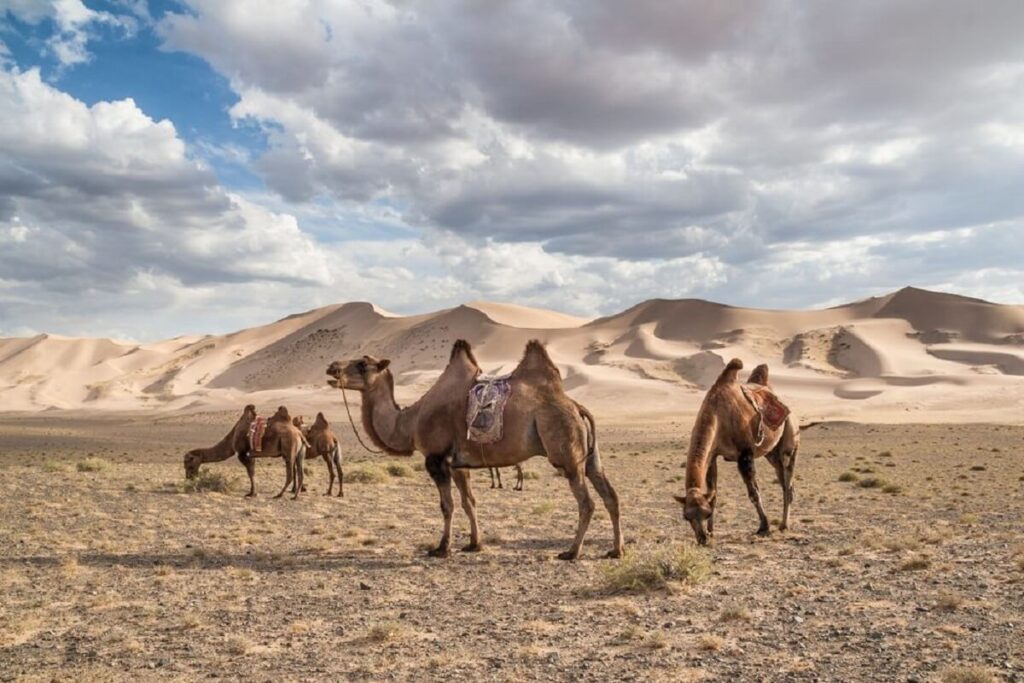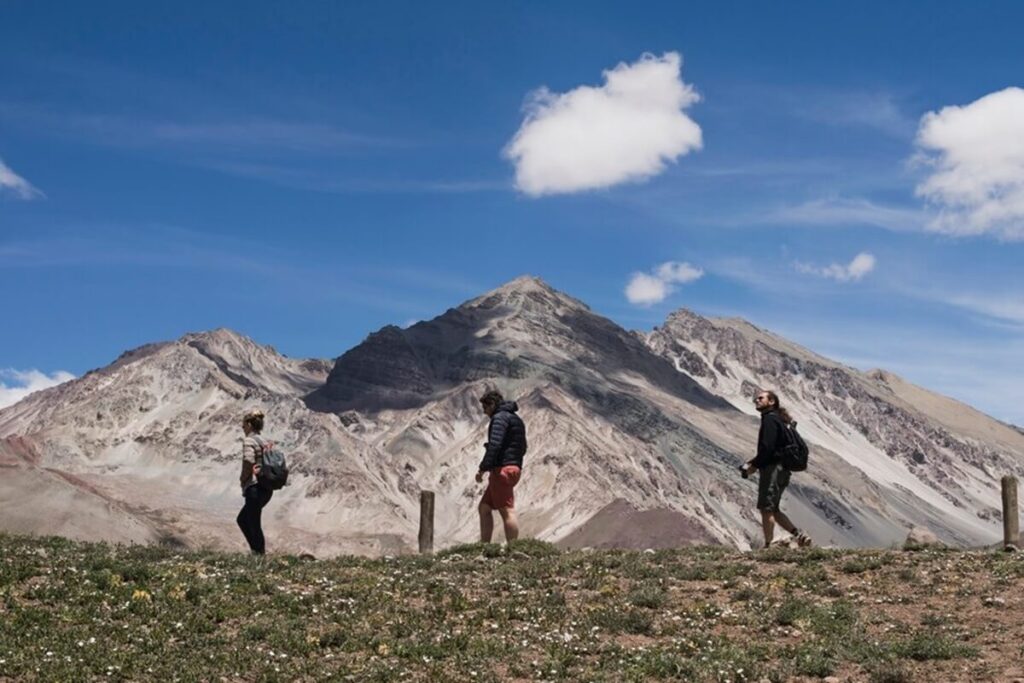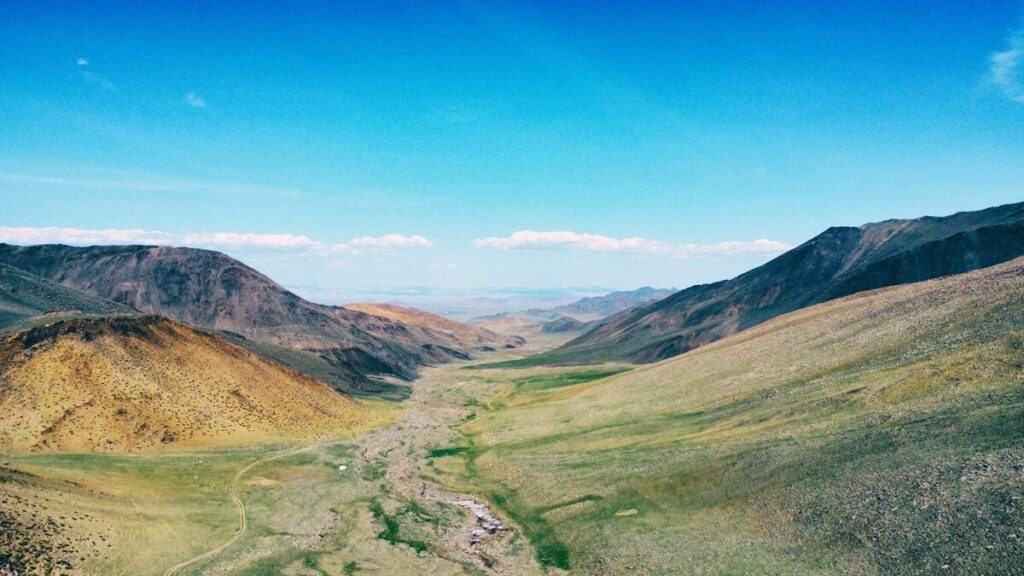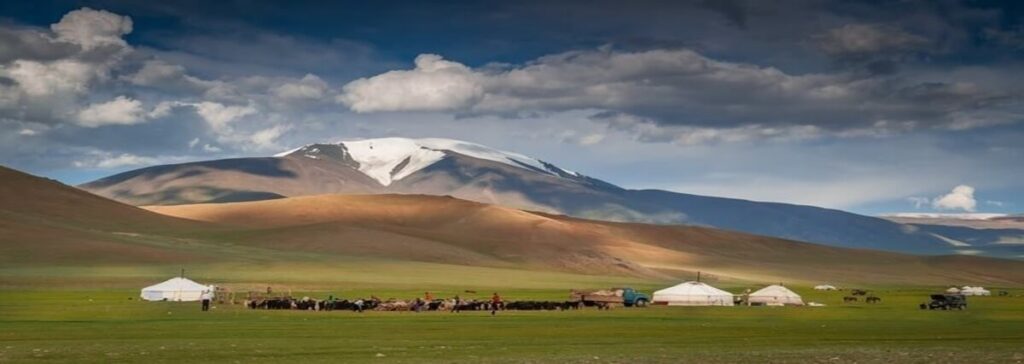Mongolia, a land of vast steppes, towering mountains, and arid deserts, is a country rich in natural wonders and historical sites.
Among its many treasures, one stands out for its unique beauty and geological significance—the Tsagaan Suvarga, often referred to as the “White Stupa.”
This natural formation, located in the southeastern part of Mongolia, in the Ulziit district of the Dundgobi province, is a must-see for travelers seeking to experience the diverse landscapes and cultural heritage of the region.
We offer you GOBI TOUR MONGOLIA. Tour itinerary includes visiting local herders and exploring more about nomadic lifestyle of the community. It will be wonderful 🤩🤩
A Geological Marvel
Tsagaan Suvarga, which translates to “White Stupa” in Mongolian, is a stunning natural formation that rises dramatically from the surrounding plains.
It is not a man-made structure, but rather a product of millions of years of erosion. The formation is composed of colorful layers of rock, primarily clay, and limestone, that have been shaped by wind and water into a series of cliffs and valleys.
The cliffs reach heights of up to 30 meters (approximately 98 feet), creating a striking contrast against the flat terrain of the Gobi Desert.
The colors of Tsagaan Suvarga are one of its most captivating features. The layers of rock, which were once the bed of an ancient sea, display a spectrum of hues ranging from white and yellow to red and pink.
These colors change throughout the day as the sun moves across the sky, creating a dynamic and ever-changing landscape.
The site is particularly breathtaking at sunrise and sunset when the soft light enhances the natural colors, giving the cliffs an almost otherworldly glow.
Cultural and Historical Significance
Beyond its geological beauty, Tsagaan Suvarga holds cultural and historical significance. The name “White Stupa” is symbolic, as stupas in Buddhist tradition are sacred structures that often contain relics and serve as places of meditation.
While Tsagaan Suvarga is not a religious monument, its name reflects the reverence that locals have for this natural wonder. The formation is seen as a place of spiritual importance, a reminder of the deep connection between the Mongolian people and their natural environment.
The area around Tsagaan Suvarga is also rich in history. Archaeological findings in the region suggest that it was once inhabited by ancient nomadic tribes.
Tools, pottery, and other artifacts discovered here indicate that the area has been a site of human activity for thousands of years. This connection to the past adds another layer of significance to the Tsagaan Suvarga, making it not just a natural wonder, but also a window into Mongolia’s ancient history.
Tsagaan Suvarga Today
Today, Tsagaan Suvarga is a popular destination for both domestic and international tourists. It is often included in tours of the Gobi Desert, where visitors can experience the full range of Mongolia’s diverse landscapes, from the sand dunes of Khongoryn Els to the flaming cliffs of Bayanzag.
The site is easily accessible by road, and many tour operators offer guided trips to the area, often including it as part of a broader itinerary that explores the natural and cultural highlights of the region.
Visitors to Tsagaan Suvarga can explore the formation on foot, taking in the panoramic views from the top of the cliffs or wandering through the valleys below.
The area is also a popular spot for photography, with the vibrant colors and unique shapes of the cliffs providing endless opportunities for capturing stunning images. For those interested in geology, Tsagaan Suvarga offers a fascinating glimpse into the Earth’s history.
The exposed layers of rock reveal the story of an ancient sea that once covered the region, and the processes of erosion that have shaped the landscape over millions of years. This makes it a site of both scientific and aesthetic interest, appealing to a wide range of visitors.
Tsagaan Suvarga is more than just a beautiful natural formation; it is a symbol of the rich geological, cultural, and historical heritage of Mongolia.
Its striking colors, unique shapes, and deep connection to the past make it a must-see destination for anyone exploring the Gobi Desert.
Whether you are drawn to its natural beauty, its spiritual significance, or its historical importance, Tsagaan Suvarga is sure to leave a lasting impression on all who visit.







